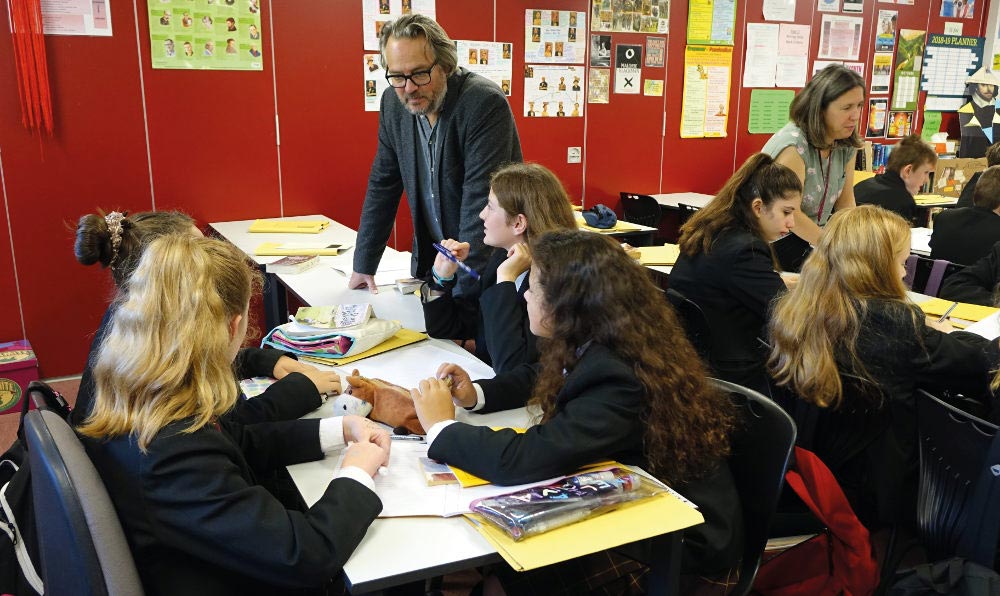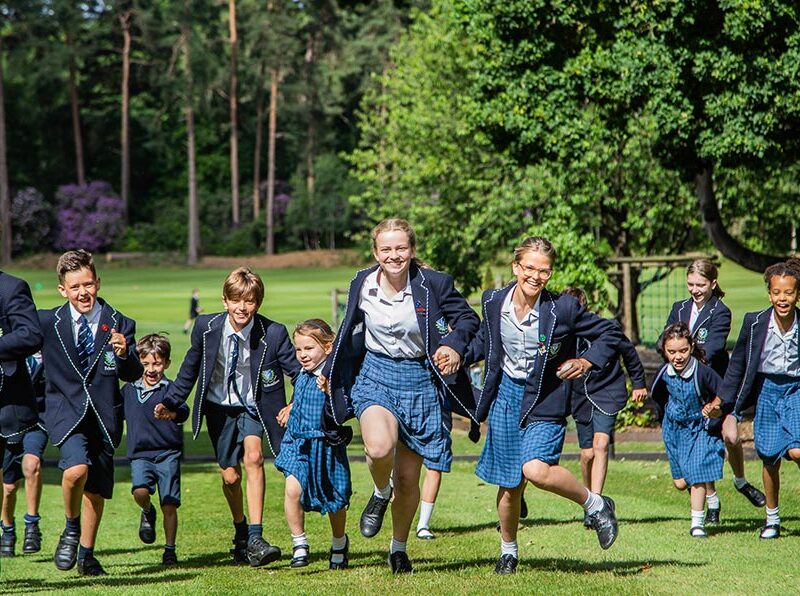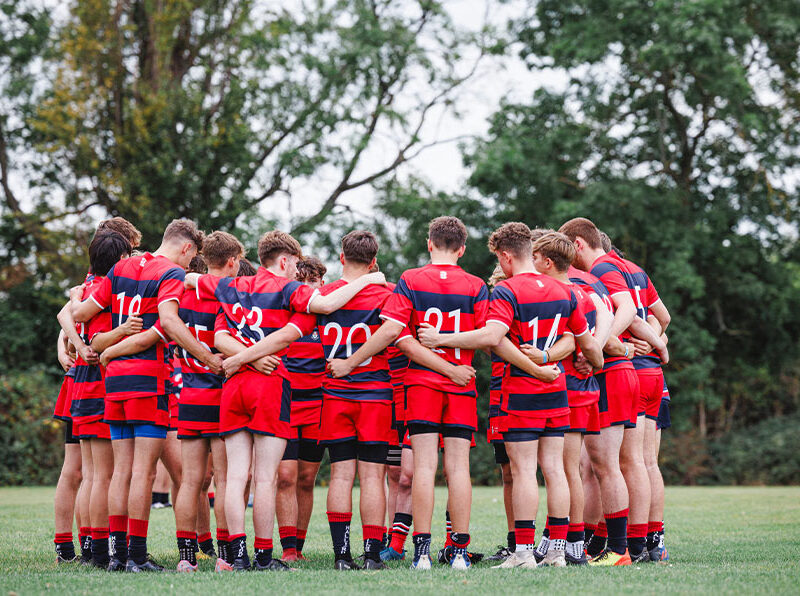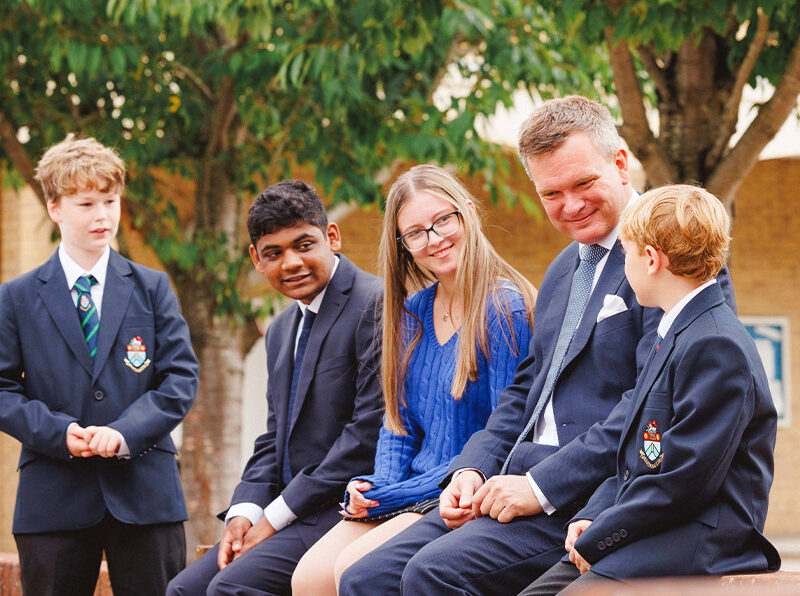
Changing world, changing curricula
One of the biggest influencing factors in choosing a school is the curriculum it offers. We look at how schools make the difficult choices on what to teach
As the world of work, and indeed, society, changes schools are having to adapt their curricula to meet this evolving landscape. It is a challenge. What skills will be valued when technology keeps evolving apace, and how can schools balance the need for rigorous academic studies in order to pass exams with broader subjects that will equip students for the wider world?
Many are offering a wide a range of subjects as possible. Says Suzie Longstaff, headmistress of independent girls’ school Putney High: “Putney is all about opportunity, inspiration, and enthusiasm for learning, so it’s very much part of our ethos to have an active curriculum that gets students engaged and enthusiastic right from the outset. Our curriculum is kept deliberately broad to allow our pupils to discover what they’re really passionate about and to fuel their curiosities throughout their time at school. We offer the widest possible selection of subjects both at GCSE and A-level so that students can find their strengths and discover what really enthuses them, whether that is applying for an Arkwright engineering scholarship or studying Humanities with the aim of reading Liberal Arts at a US university.”
Independent school Surbiton High also offers a broad range of subject choices throughout the various key stages including History of Art, Classical Greek, D&T Resistant Materials, Philosophy and Sociology on top of more traditional subjects. “The current subject selection sees a diverse range of over 30 GCSEs and 30 A-levels. The breadth on offer allows pupils to explore their interests, find their niche and further aids their higher education selection,” says principal Rebecca Glover.
While state schools follow the National Curriculum, private schools and academies can choose their own. Sexey’s School is a CofE co-educational state boarding school for 11-18 year olds in Bruton, popular with south west London families, and while it is an academy, the broad outlines of the National Curriculum are followed across the school. Says Helen Cullen, headteacher: “Our curriculum is designed so that the learning pathway of all students is broad, balanced, and appropriate for each individual. The curriculum has been reviewed in light of the new National Curriculum introduced in 2014, leading to the English Baccalaureate (EBacc).” She adds: “We take the words of our mission statement – ‘Teaching boys and girls to think independently, act wisely and be fully engaged in a challenging and changing world’ – very seriously, and students will experience a variety of learning styles and techniques so that they are fully prepared for life beyond the school gates.”
“Obviously there is still a need for a curriculum. But it is also important as teachers that we continue to offer our students room to think freely and foster an entrepreneurial spirit…”
Ensuring that pupils are well prepared for the future includes both higher education and careers. Rebecca Glover points out that a report from Oxford University’s Educational Studies Department noted that pupils need to be equipped with lifelong skills for learning and it was felt that learners who may have achieved academic success by such means at A-level are increasingly coming into higher education expecting to be told the answers, and struggle to cope with the more independent and self-directed style of learning expected by higher education tutors. Independent learning opportunities are vital, as part of these broader curricula. Says Rebecca: “We have designed our curriculum to enable pupils to keep abreast of these challenges that lie in their future path. Our ‘Philosophy for Learning’ is integral to this approach. Based on research by Guy Claxton and Graham Powell, our philosophy focuses on the importance of developing a wide range of positive learning habits that will equip pupils throughout their education and careers. Through thorough Primary and Secondary School research our pupils develop 17 core learning habits, all interlinked and vital to ensure they can flourish whatever life might throw at them.”
Putney offers an Extended Project Qualification (EPQ), an independently designed project where pupils decide on the subject matter and become a real expert in something that interests them. Recent topics have ranged from The Rise of the Inadvertent Filmmaker to Healthcare in Rwanda. “By defining the question, undertaking extensive research and producing an extended essay or artefact, students can really engage with their learning, working in a style more typical of university,” adds Suzie Longstaff.
Schools are also looking at what the future world of work might look like. But it is hard to predict. Says Rebecca: “Surbiton High School uses World Economic Forum (WEF) data on the skills likely to be most highly prized by global organisations to future-proof the curriculum; changes in skill requirements are matched by the curriculum. Currently the skills most likely to be of use include creativity, problem solving and critical thinking. Our pupils are fortunate that thinking creatively is already at the heart of our curriculum with our ‘in-residence’ roles (Composer, Entrepreneur, Theatre Director and Writer) allowing creativity and enterprise to flourish.”
Suzie Longstaff notes that any curriculum needs to be balanced, looking holistically at the educational experience for a pupil. “At Putney the curriculum ties in with our Wellbeing Programme (the Positive Schools Programme forms part of our PHSE curriculum) and at different stages we include PPE (logic, reasoning and independent thinking lessons) and a huge range of activities provided by our Residency Programme, which include entrepreneurship, debating, and public speaking with the support of our Orator in Residence. We believe very much in a cross-curricular approach to learning, and this year begin work on our new Science, Music, Drama and Debating Centre where we will combine the teaching of science and the arts in lots of exciting new ways.”
Encouraging entrepreneurship in students is particularly coming to the fore. Sexey’s School welcomed author, comedian and actor Charlie Higson into school to work with Year 8 students on creative thinking and problem-solving. Together, they designed new ‘Choose your own adventure’ books, with Mr Higson encouraging the students to “fire up their imaginations”. He stressed the need for creativity, saying, “The most valuable commodity in the modern world is IP – intellectual property. Original ideas make the billions, not rote learning. But in the current structure, aren’t we simply encouraging a generation of kids who all know exactly the same thing? Where is the creativity going to come from? The fresh thinking?” Says Helen Cullen: “Obviously there is still a need for a curriculum. But it is also important as teachers that we continue to offer our students room to think freely and foster an entrepreneurial spirit. Our school TEDx debates – led by the Sixth Form – is just one forum in which this is encouraged at Sexey’s.”
As well as an extensive curriculum, schools are exploring how to encourage children to pursue particular interests and develop skills through an ever-increasing number of extra-curricular activities. Sexey’s offering ranges from Warhammer to campanology. “Our staff are extremely dedicated and give up immense amounts of their personal time to run Duke of Edinburgh, arrange fencing classes, sports fixtures, arrange trips to Nepal and China and much more. One of our students has just been accepted to train on a national level in canoeing, and we absolutely support and welcome that – we look forward to seeing her at the Olympics in the not too distant future.”
While much focus in recent times has been on academic success in traditional subjects, and indeed it will always remain the cornerstone of education, schools are actively seeking new opportunities to engage students, offering numerous ways in which to flourish according to abilities and different skillsets, while also preparing for a world in which there are no certainties. Creative thinking, entrepreneurship and resilience will be key.
Notes Suzie: “Technology and innovation are changing at such a fast pace that as educators, we need to develop a curriculum which can be agile and produce confident, creative thinkers who not only have a solid foundation in scholarship, but have curious minds, the ability to work with others to problem-solve; and the kind of agile, entrepreneurial mindset that will set them apart in the future. These are skills for any young school-leaver today, regardless of the field they wish to go into and the curriculum will need to adapt in order to reflect this if it is to produce students who are not only “future proof,” but globally competitive too.”






